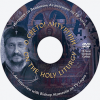POPULAR UPRISING AGAINST THE TURKS
All patriarchs belonging to Sokolovic family tended to have correct relationships with Turks. However, although general living conditions were somewhat easier than at the beginning of Turkish occupation, Patriarch Jovan Kantul (1529-1613, John) changed this previously established attitude of his predecessors since both he and the people in general recognised the fact that the nation was still clearly enslaved. It was thought that nothing but freedom gained through a popular uprisings could set things to the right track again. This attitude prevailed by the end of the 16th century and continued to be in effect until freedom was gained three centuries later.
In 1594 an uprising of Serbs occurred in the region of Banat. Rebels carried flags bearing icons of St. Sava. A similar uprising broke out in the vicinity of Pec, and one occurred in Herzegovina in 1597. All of these were brutally put down by Turks and were ended in a terrible bloodbath. St. Theodore, Bishop of Vrsac and leader of Banat rebels, was skinned alive. As a measure of retaliation one of Turkish local rulers, Sinnan Basha, ordered relics of St. Sava to be burned in Beograd on April 27th/May 10th 1594. Patriarch Jovan Kantul also paid a heavy price — he was executed in Constantinople in 1613.
Patriarch Pajsije Janjevac (1614-1647, Paysiye Yanyevats) realized that open rebellion could not set things right. He turned for aid to Imperial Russia which had for a while already been a source of literary (service books) and some financial support. As the head of the Church he worked earnestly to strengthen the faltering spirit of the nation through constant celebration of Liturgy and by intense writing. He wrote the biography of the last Serbian emperor, Uros, and composed a Service to him. He also wrote the Service to St. Symon (King Stefan Prvovencani).
Patriarch Gavrilo I (1648-1655, Gabriel) also died a martyr’s death whilst in Turkish captivity.




